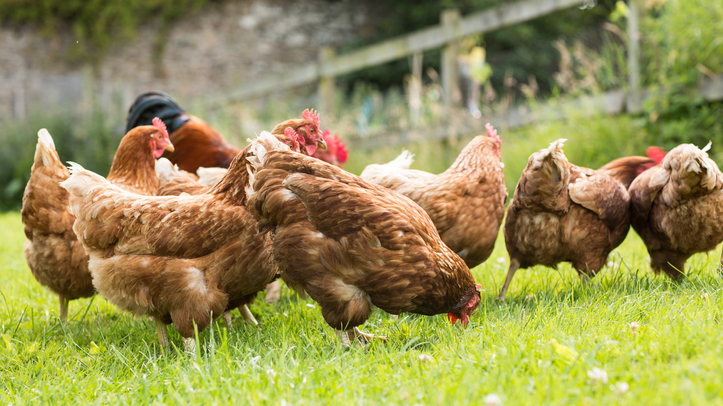Chief veterinary officers from England, Scotland and Wales have declared an Avian Influenza Prevention Zone (AIPZ) across the entirety of Great Britain following a continuing rise in the number of detections of the disease amongst poultry and wild birds.
Localised AIPZs have previously been declared in East Anglia and the South West of England, but the decision has now been made to introduce nationwide restrictions as the country faces its largest ever outbreak of avian flu with 190 cases confirmed across the United Kingdom since late October 2021, and over 30 of these confirmed since the beginning of this month.
From midday today (October 17), it will be a legal requirement for all bird keepers in Great Britain to follow strict biosecurity measures to help protect their flocks from the threat of avian flu.
Avian influenza circulates naturally in wild birds and when they migrate to the United Kingdom from mainland Europe over the winter, and they can spread the disease to poultry and other captive birds. Maintaining strict biosecurity is the most effective method of protecting birds from the virus, the government says.
The introduction of an AIPZ follows a decision to raise the risk level for avian influenza incursion in wild Birds in Great Britain from ‘medium’ to ‘high’. For poultry and captive birds the risk level has been raised from ‘medium’ to ‘high’ at premises where biosecurity is below the required standards, and from ‘low’ to ‘medium’ where stringent biosecurity measures are applied.
The nationwide AIPZ builds on the additional biosecurity measures that were brought in last week as part of the regional housing order which covers Norfolk, Suffolk and parts of Essex. The AIPZ, now in force across Great Britain, does not currently include a nationwide requirement to house birds.
The UK Health Security Agency (UKHSA) advises that the risk to public health from the virus is very low and the Food Standards Agency advises that avian influenzas pose a very low food safety risk for consumers. Properly cooked poultry and poultry products, including eggs, are safe to eat.
The AIPZ means bird keepers across Great Britain must:
- Keep free ranging birds within fenced areas, and that ponds, watercourses and permanent standing water must be fenced off (except in specific circumstances such as zoo birds)
- Clean and disinfect footwear and keep areas where birds live clean and tidy
- Minimise movement in and out of bird enclosures
- Reduce any existing contamination by cleansing and disinfecting concrete areas, and fencing off wet or boggy areas
- Keep domestic ducks and geese separate from other poultry
- Ensure the areas where birds are kept are unattractive to wild birds, for example by netting ponds, and by removing wild bird food sources
- Feed and water your birds in enclosed areas to discourage wild birds.



